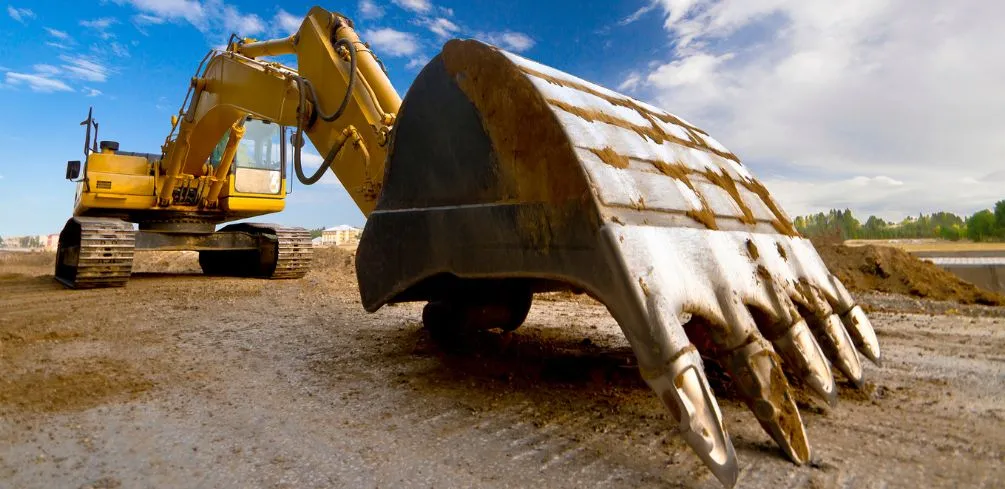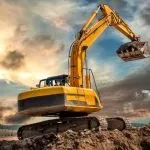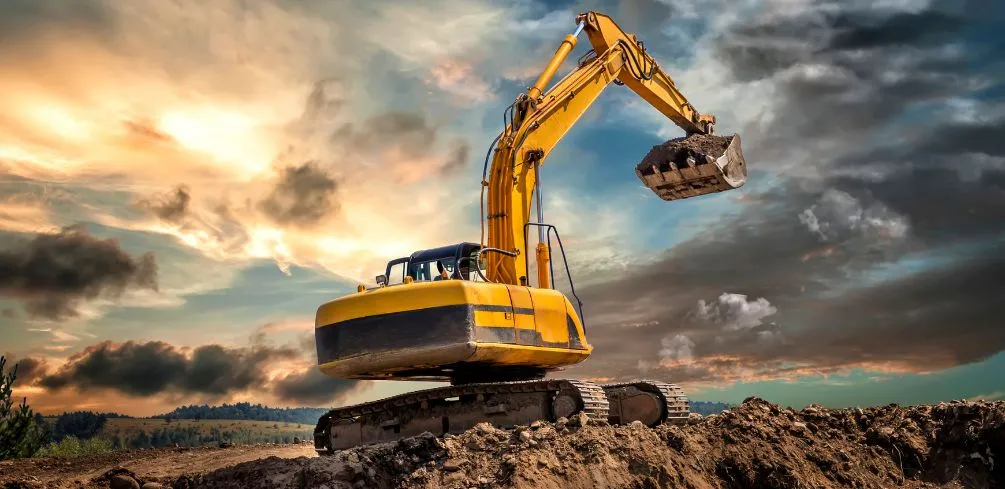The act of excavation has been an integral part of human history, from the earliest civilizations to modern times. Excavation for dirt is a crucial process that involves removing soil or earth from a site in order to uncover artifacts, fossils, or other significant materials.
This process has enabled researchers and scientists to uncover the mysteries of the past and gain insights into how societies developed over time. Excavation for dirt has played a vital role in shaping our understanding of ancient cultures and civilizations. It has allowed us to reconstruct their daily lives, customs, beliefs, and practices by examining the artifacts and structures they left behind.
Through excavation, we have discovered evidence of early human settlements, religious practices, agriculture techniques, trade routes, and much more. The field of archaeology relies heavily on excavation as it provides tangible evidence for theories about the past.
Furthermore, excavation for dirt is not only important for historical research but also essential for construction projects such as building foundations or roadways.
The Importance Of Excavation In Archaeology
Archaeology is a field that relies heavily on excavation to uncover artifacts and pieces of history buried beneath the ground. The process of excavation involves carefully removing layers of soil and sediment to reveal what lies beneath.
By doing so, archaeologists can piece together the story of past civilizations, from their daily lives to their monumental achievements.
Technological advancements have revolutionized the way archaeologists approach excavation. In the past, manual labor was used to excavate sites, which was both time-consuming and physically demanding. However, with the use of modern tools such as ground-penetrating radar and 3D mapping software, archaeologists can now work more efficiently and accurately.
Despite these advancements, it is crucial for archaeologists to consider the environmental impact of their work. Excavation can potentially harm ecosystems and disturb natural habitats if not done carefully and responsibly. As such, archaeologists must take great care in planning their excavation methods to minimize any adverse effects on the environment.
Uncovering Artifacts Through Excavation
Archaeologists understand the importance of excavation in uncovering historical artifacts. The process involves carefully removing layers of soil to reveal the hidden treasures beneath. Excavation is a crucial step in the archaeological process, as it allows for artifacts to be found and analyzed, revealing important information about past civilizations.
To properly analyze excavated artifacts, archaeologists use a variety of techniques. One such technique is stratigraphy, which involves analyzing the different layers of soil to determine the age and context of each artifact found within them.
Another technique is carbon dating, which uses radioactive isotopes to determine the age of an artifact. These analysis techniques are vital in understanding the historical significance of excavated artifacts and providing insight into past civilizations.
In addition to providing valuable historical information, the excavation also plays an important role in preserving cultural heritage. By carefully removing soil and uncovering artifacts, archaeologists can ensure that these important pieces of history are not lost or destroyed over time.
As we continue to excavate sites around the world, we gain a deeper understanding of our shared human history and our place within it.
Excavation Techniques And Tools
Excavation is an essential process in construction that involves removing soil or rock from the ground to create a space for building foundations, roads, or other structures. There are various techniques and tools used in excavation depending on the type of soil or rock, the size of the project, and the depth of excavation required.
In addition to considering these factors, it is crucial to prioritize excavation safety to prevent accidents and minimize associated costs.
One technique used in excavation is open-cut excavation, which involves digging a trench in the ground using heavy machinery such as excavators and bulldozers. This method is commonly used for laying pipelines or constructing underground utilities.
Another technique is hydraulic excavating, which uses high-pressure water jets to loosen the soil before suctioning it out using a vacuum hose. This method is useful for excavating in areas with limited space or where traditional methods are not practical.
In terms of tools, shovels, and picks are still widely used for manual excavation but have mostly been replaced by power tools such as jackhammers and rotary hammers due to their efficiency.
When planning an excavation project, the cost is a significant factor that must be taken into account. The cost of excavation can vary greatly depending on several factors, such as soil type, location of the site, and amount of labor required, among others.
It is essential to conduct a thorough evaluation of all necessary expenses before starting any excavation work to avoid surprise costs down the road.
Additionally, prioritizing safety during excavation can help minimize costs associated with accidents or damage caused during the process. By implementing proper safety measures such as using protective gear and equipment maintenance checks regularly, potential damages can be minimized while keeping overall costs low.
Excavation For Construction Projects
As discussed in the previous section, excavation is a crucial step in construction projects. It involves removing soil and other materials from the ground to make way for building foundations and other structures. Excavation techniques and tools vary depending on the type of soil, depth of excavation, and project requirements.
Before any excavation work begins, it is essential to conduct soil testing to determine its composition and properties. This process helps identify potential problems that may arise during excavation, such as unstable soil conditions or contamination. Additionally, it allows contractors to plan accordingly and take necessary precautions to minimize environmental impact.
Some common methods of soil testing include borehole drilling, sampling, and laboratory analysis. By conducting comprehensive soil tests before excavation commences, contractors can ensure safe and efficient work practices while minimizing potential damage to the environment.
To create imagery in the audience’s mind:
- Imagine a construction site with heavy machinery digging into the earth.
- Picture a team of professionals conducting soil tests using specialized equipment.
Overall, excavation for construction projects requires careful planning and execution to ensure successful outcomes. Soil testing plays a vital role in this process by identifying potential issues beforehand while minimizing environmental impact.
With proper preparation and adherence to safety protocols, excavators can achieve their goals while ensuring minimal disruption to surrounding areas.
Ethical Considerations In Excavation And Preservation
Balancing excavation and preservation is a complex issue that requires careful consideration of ethical considerations. Cultural heritage plays an important role in this process, as it embodies the collective identity, values, and beliefs of a community. The excavation of cultural heritage sites can provide valuable insights into the past, but it also poses significant threats to the preservation of cultural heritage.
One ethical consideration in excavation and preservation is the need for collaboration between archaeologists and local communities. Involving local communities in the decision-making process can help ensure that their cultural heritage is respected and preserved.
Another consideration is the use of appropriate excavation techniques to minimize damage to cultural heritage sites. Archaeologists should prioritize preservation over excavation, using non-destructive methods whenever possible.
Balancing excavation and preservation requires a delicate balance between scientific inquiry and ethical considerations, but it is essential for safeguarding our shared cultural heritage for future generations.
In conclusion, ethical considerations play an important role in balancing the excavation and preservation of cultural heritage sites. It involves involving local communities in decision-making processes while prioritizing preservation over excavation through non-destructive methods, if possible.
To preserve our shared history, we must find ways to protect our cultural heritage without destroying it through careless or inappropriate excavations. By doing so, we can ensure that future generations have access to the rich history that defines us as human beings.
Frequently Asked Questions
What Is The Cost Of Excavation Services?
Excavation cost breakdown refers to the process of determining the different expenses incurred during excavation services. Several factors affect excavation pricing, including the type of soil, location, and size of the project site.
The depth of excavation required and access to the site also play a significant role in determining the cost. Other factors include the equipment needed for the job, labor costs, and any additional services required, such as debris removal or permits.
For those seeking excavation services, it is essential to understand these factors to avoid unexpected costs and ensure that their project stays within budget.
Can Excavation Be Done Without Causing Damage To The Surrounding Environment?
Eco-friendly techniques and sustainability measures are crucial factors to consider when conducting excavation works. Excavation activities can pose a significant threat to the surrounding environment if not carried out using appropriate methods.
To minimize environmental impact, excavation contractors should adopt eco-friendly practices such as utilizing low-emission machinery, recycling materials, and minimizing soil erosion.
Sustainability measures such as using renewable energy sources can also be incorporated to reduce carbon emissions associated with excavation activities.
By embracing these approaches, excavators can promote environmental conservation while achieving their objectives.
How Long Does It Typically Take To Complete An Excavation Project?
The excavation timeline is one of the most critical aspects of an excavation project. Typically, the duration of an excavation project is dependent on various factors, such as the size and complexity of the project, terrain characteristics, weather conditions, and available resources.
According to recent research conducted in the construction industry, a typical excavation process lasts between three to six months. However, larger projects may take up to a year or more to complete.
The excavation timeline is affected by several variables that need careful consideration and management to ensure the timely completion of the project while minimizing environmental impact. Therefore, it is vital to plan and execute an excavation project meticulously for optimal results.
What Types Of Equipment Are Used For Excavation?
Excavation work requires a range of equipment to efficiently and safely complete the task. The types of equipment used in excavation include backhoes, bulldozers, excavators, loaders, and trenchers.
Operators must also perform regular maintenance on the equipment to ensure it remains in good working order. Safety considerations are crucial during excavation work as accidents can be severe or even fatal.
Precautions such as proper training and protective gear are essential to minimize risks associated with excavation work.
What Qualifications Do Excavation Professionals Have?
Excavation professionals are highly skilled individuals who possess a variety of qualifications and training requirements. These professionals are responsible for performing a wide range of job responsibilities, including operating heavy machinery, conducting site assessments, and adhering to safety protocols.
In order to become an excavation professional, individuals must undergo extensive training and obtain the necessary certifications and licenses. The salary range for these professionals can vary depending on their level of experience and expertise, with opportunities for career advancement available through continued education and certification programs.
Overall, excavation professionals play a critical role in the construction industry, utilizing their specialized skills to ensure that projects are completed safely and efficiently.
Conclusion
Excavation projects are essential in the construction, landscaping, and mining industries. The cost of excavation services varies depending on the nature and size of the project.
Excavation professionals employ techniques to ensure that the surrounding environment is not damaged during excavation. The duration of excavation projects depends on various factors such as the surface area, soil type, and weather conditions.
Professionals use different types of equipment, such as excavators, bulldozers, and backhoes to perform excavation tasks efficiently. Excavation professionals need to have relevant qualifications and certifications to execute their duties effectively.
In conclusion, excavation for dirt involves a range of activities that require professional expertise to be successful. The use of appropriate equipment, adherence to safety protocols and regulations, and proper planning are critical in ensuring that excavation work is completed efficiently without causing damage to the environment.











